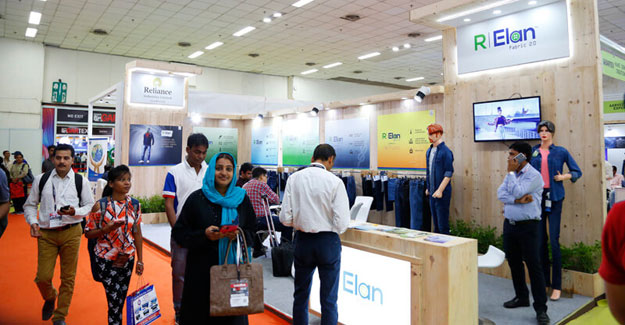
Indian T&C Industry Must Re-Weave Itself To Make A Strong Comeback
The suppression of demand in the global textile and apparel market can turn out to be an eventful opportunity for Indian exporters. Although the segment is currently experiencing a deficit in demand, manufacturers should remain future-focused and prepared to meet the preferences of their clients as demands re-surface. As a future vision, Indian textile and apparel exporters must strongly focus on implementing competitive pricing and running better delivery schedule to match international standards in order to gain greater preference from importers worldwide. In case of domestic retailers, the strength of online presence has governed their business throughout the course of lockdown, enabling them to tap into demands across tier II, III cities and rural markets. Digital business models will therefore continue to remain prominent for local apparel sellers. Commenting on the future focus of the industry, organiser of Gartex Texprocess India (India’s leading exhibition in the garment and textile industry), Raj Manek, Executive Director and Board Member, Messe Frankfurt Asia Holdings Pvt Ltd shared: “New trends will shape the future of Indian textile and apparel segment in the coming period. Targeting small packets of demand and focusing on shorter turnover time will be an effective strategy for apparel producers to deal with current market inconsistencies.” “Businesses that can recognise the ebb and flow of the market and focus on adopting sustainability and recyclability in their business models will bounce back more strongly.” elaborates Manek. Messe Frankfurt through its textile exhibitions advocates sustainability and innovation in fashion and textile industry as a part of its commitment to Sustainable Development Goals (SDGs), in global collaboration with the Conscious Fashion Campaign and the United Nations Office. The need for efficient allocation of costs and materials have also become a strong highlight for Indian apparel segment during the pandemic. Manufacturers must therefore imbibe a circular economy model and repurpose pre- and post-consumer waste to save resources as well as minimise expenditure on raw materials and logistics. Designer masks and protective kits that couple fashion with safety and convenience are rapidly gaining demand across the globe. Similarly consumers are switching from ordinary home apparels to those made with anti-viral fabrics. With increasing awareness towards personal health and hygiene, focusing on anti-viral apparels and face masks will help Indian manufacturers exploit a massive volume of demand, especially from healthcare and hospitality sector. “Tapping into the urgent needs of the market, identifying future trends and working with a sustainable approach will definitely enable Indian textile and apparel sector to emerge more strongly organised and well-equipped to face the new normal.” concludes Manek.
Textile Excellence
If you wish to Subscribe to Textile Excellence Print Edition, kindly fill in the below form and we shall get back to you with details.












